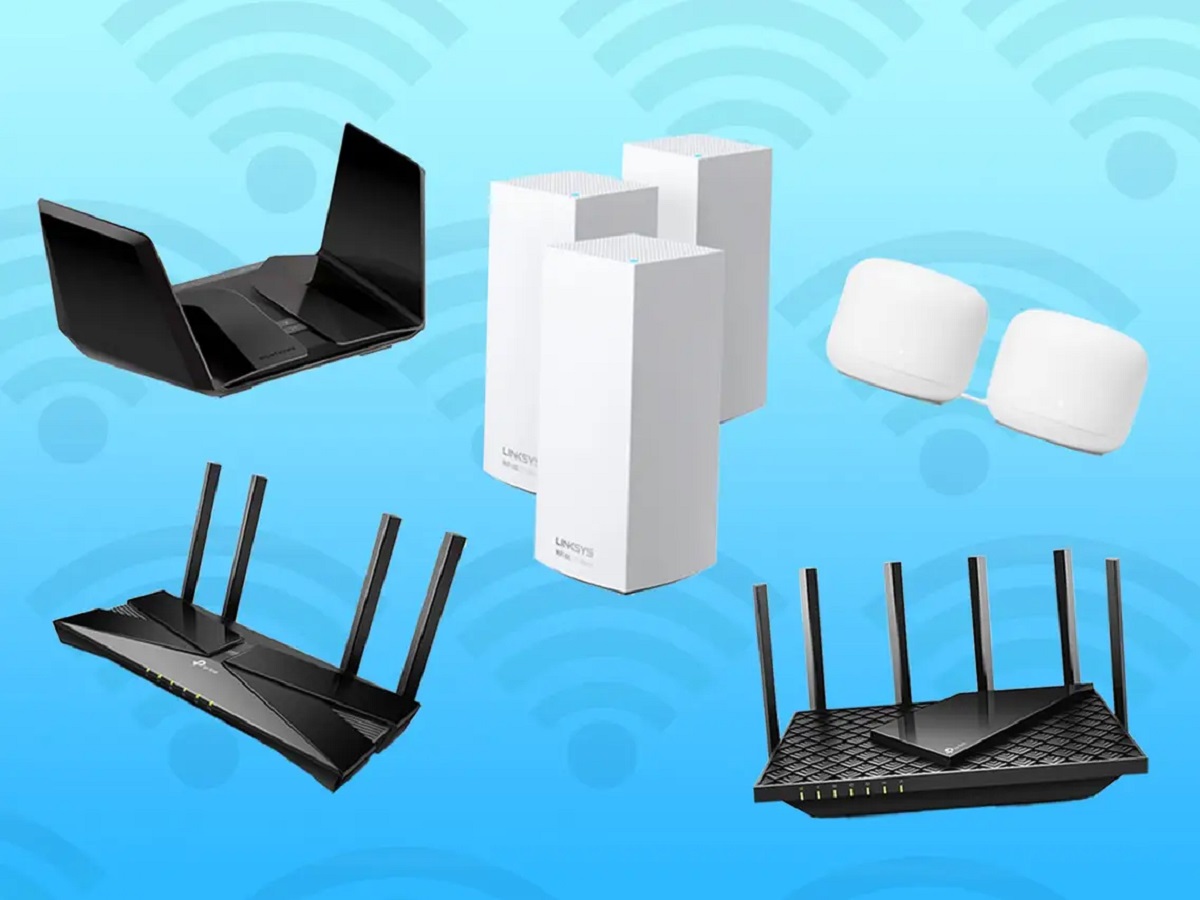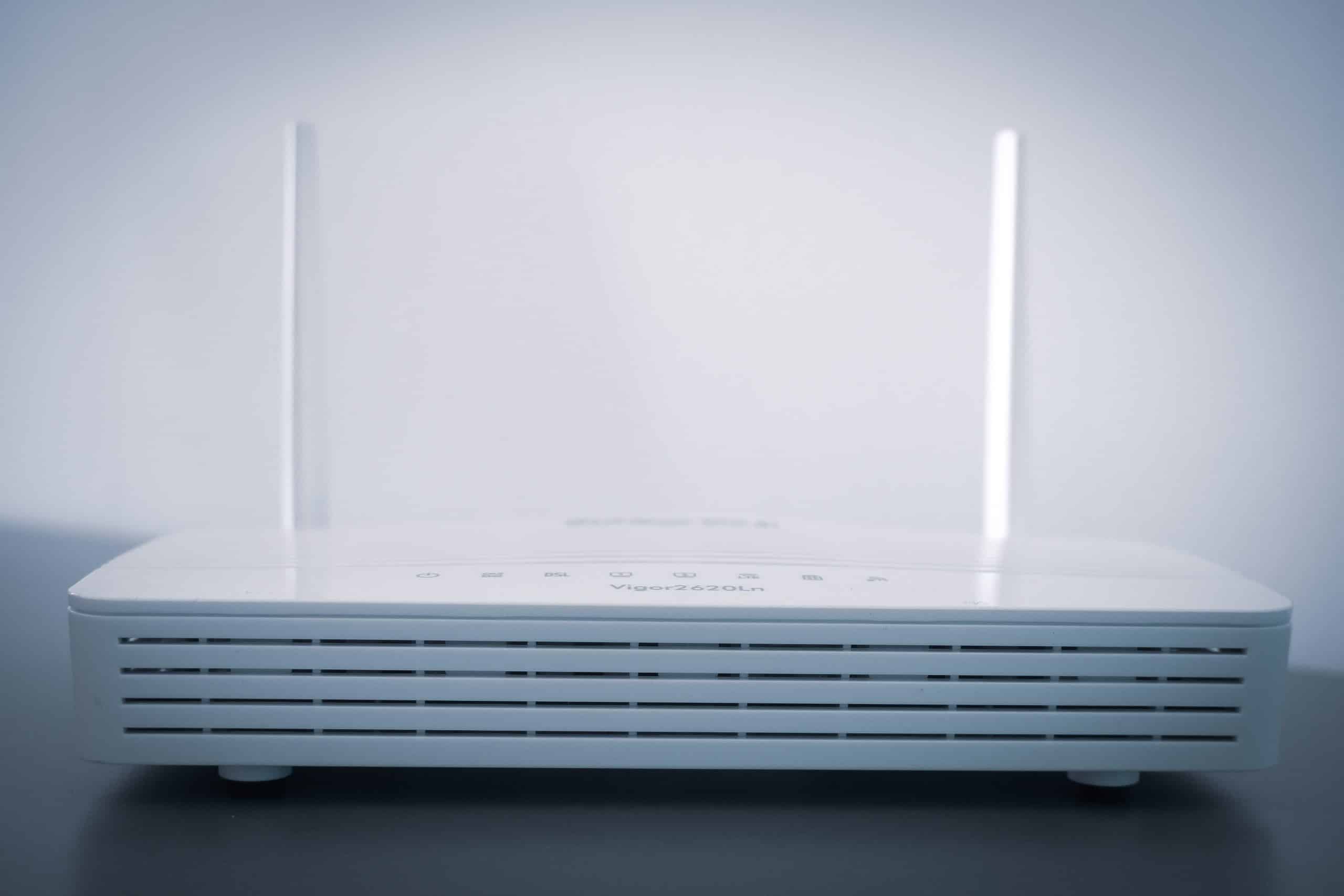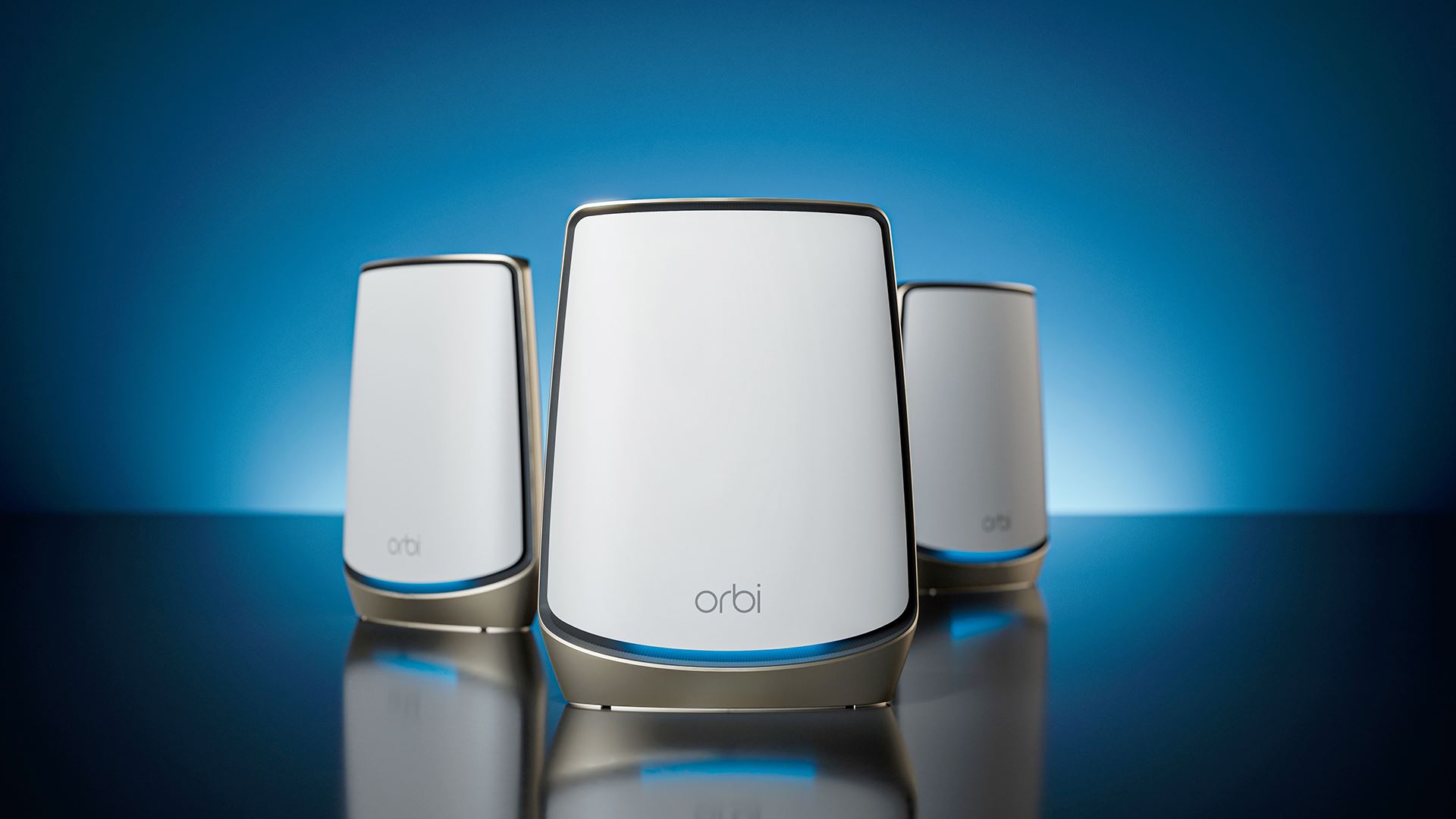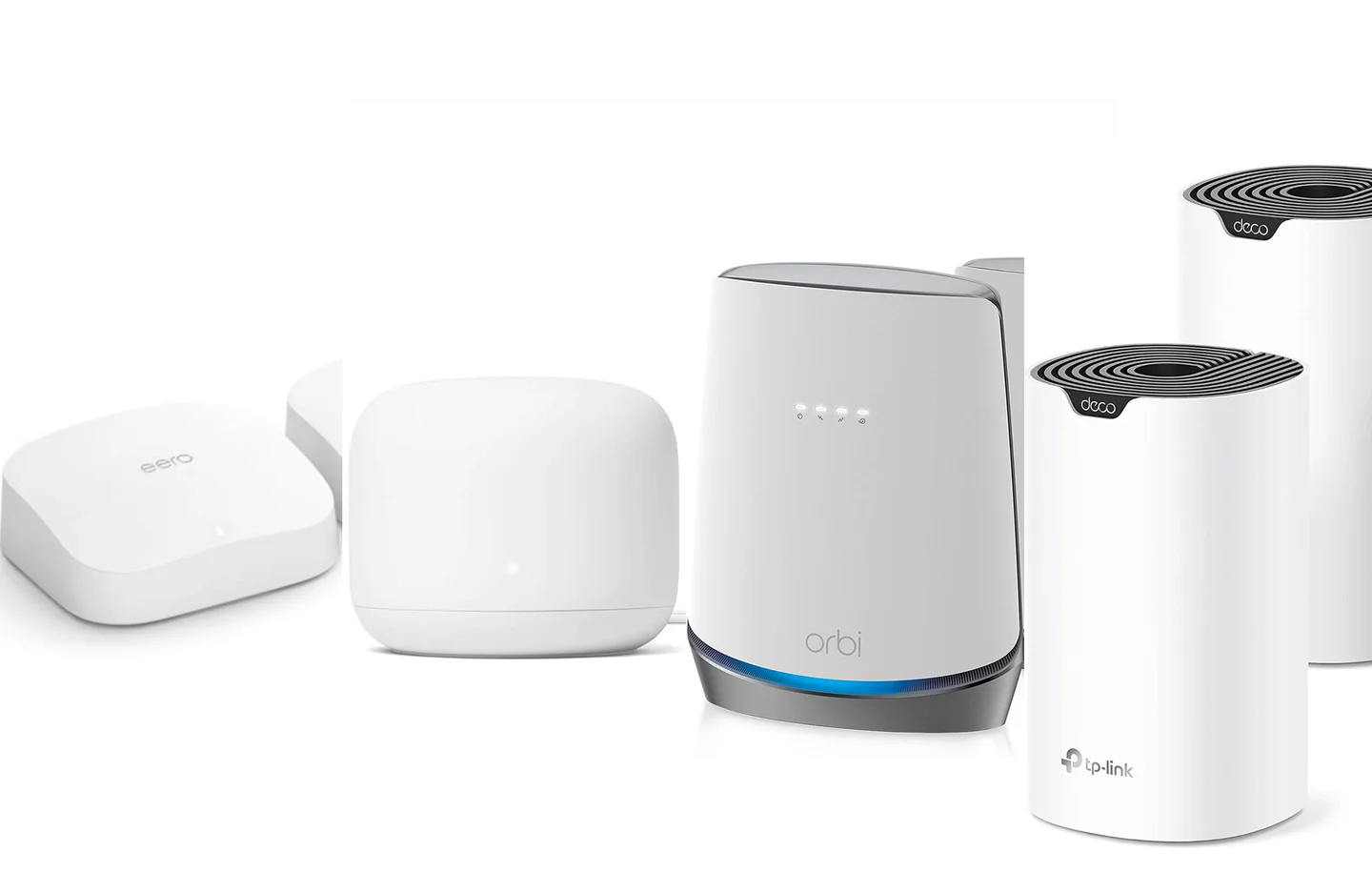Introduction
Welcome to the world of smart homes, where the Internet of Things (IoT) is transforming the way we live. From automated lighting to voice-controlled virtual assistants, smart home technology offers convenience, comfort, and security. However, to fully harness the power of these innovative devices, you need a robust internet connection. Internet speed plays a crucial role in ensuring the smooth operation of your smart home ecosystem.
When it comes to internet speed for smart homes, the age-old adage “the faster, the better” holds true. But how fast is fast enough? In this article, we will explore the factors that affect internet speed and provide recommendations for the ideal speed for your smart home setup.
Before diving into the specifics, let’s first understand what internet speed means. Internet speed refers to the rate at which data is transferred between your devices and the internet. It is typically measured in megabits per second (Mbps) and determines how quickly you can download or upload files, stream videos, play online games, and connect to your smart devices.
Internet speed is influenced by various factors, including your internet service provider (ISP), the type of connection (fiber, cable, DSL, or satellite), network congestion, and the capabilities of your devices. It is important to consider these factors when determining the appropriate internet speed for your smart home.
Having a reliable and fast internet connection is not only essential for streaming high-definition content but also critical for the seamless operation of various smart devices. Next, we will delve into the factors that can affect internet speed in a smart home environment.
Understanding Internet Speed
Internet speed is a crucial factor in the performance of your smart home devices. Understanding the basics of internet speed will help you make informed decisions when choosing a suitable internet plan.
Internet speed is typically divided into two categories: download speed and upload speed. Download speed refers to how quickly data can be transferred from the internet to your device, while upload speed is the rate at which data can be sent from your device to the internet. Both speeds are measured in megabits per second (Mbps).
When it comes to smart homes, the emphasis is primarily on download speed. This is because most of the activities in a smart home, such as streaming videos, browsing the internet, and downloading files, require fast download speeds. Upload speed is more crucial for activities like video conferencing or uploading large files to the cloud.
Internet speed is affected by various factors, including the type of internet connection. Fiber-optic connections are known for their high-speed capabilities, offering download speeds of up to 1,000 Mbps. Cable and DSL connections are also popular choices for residential use and can provide download speeds ranging from 10 to 300 Mbps, depending on the service provider.
Another factor that influences internet speed is network congestion. During peak hours, when many people are using the internet simultaneously, network congestion can slow down your internet speed. This can be particularly relevant for households with multiple smart devices connected at the same time.
It’s important to note that the internet speed advertised by your ISP may not be the actual speed you experience. Factors such as distance from the ISP’s network hub, the quality of the wiring in your home, and the capabilities of your devices can all impact the actual internet speed you receive.
With a basic understanding of internet speed and the factors that affect it, you can now proceed to evaluate the internet speed requirements for your smart home setup. In the following sections, we will discuss the recommended internet speeds for different smart home activities, including streaming, gaming, and connecting smart devices.
Factors Affecting Internet Speed for Smart Homes
When it comes to ensuring optimal internet speed for your smart home, several factors come into play. Understanding these factors will help you identify potential bottlenecks and make the necessary adjustments to improve your internet experience.
1. Internet Service Provider (ISP): The quality and reliability of your internet connection are heavily influenced by your ISP. Different ISPs offer varying speeds and service levels. It’s important to research and choose a reputable ISP that can deliver the speeds they promise.
2. Type of Connection: The type of internet connection you have can significantly impact your internet speed. Fiber-optic connections are capable of providing faster speeds compared to cable, DSL, or satellite connections. Consider the available options in your area and choose the most suitable connection type for your needs.
3. Network Congestion: During peak usage times when many people in your area are online, network congestion can occur, causing slower internet speeds. This is a common issue in densely populated areas. Research the performance of ISPs in your area during peak hours to ensure reliable speeds during times of heavy usage.
4. Wi-Fi Signal Strength: The strength and quality of your Wi-Fi signal can affect your internet speed within your home. Walls, distance, and interference from other electronic devices can weaken the Wi-Fi signal. Ensure that your router is positioned correctly and consider using Wi-Fi extenders or mesh systems to improve signal coverage.
5. Bandwidth Allocation: The number of devices connected to your network and their bandwidth requirements can impact overall internet speed. Streaming videos, online gaming, and other data-intensive activities can consume a significant portion of your bandwidth. Prioritize bandwidth allocation for more critical devices and activities.
6. Device Capabilities: The capabilities of your connected devices also contribute to internet speed. Older devices may not support the latest Wi-Fi standards or have slower processing capabilities, limiting the speed at which they can transmit and receive data. Consider upgrading devices to ensure optimal performance.
By taking these factors into consideration and optimizing your internet setup, you can maximize the internet speed in your smart home. In the next section, we will delve into the recommended internet speeds for various smart home activities.
Recommended Internet Speed for Smart Homes
Having the right internet speed is crucial for enjoying the full potential of your smart home devices. Here are some general recommendations for internet speeds based on common activities in a smart home:
1. Streaming: If you’re a frequent streamer who enjoys watching movies, TV shows, or live sports in high definition (HD) or even 4K Ultra HD, a minimum internet speed of 25 Mbps is recommended. For multiple simultaneous streams or 4K streaming, consider opting for higher speeds, such as 50-100 Mbps.
2. Gaming: Online gaming requires a stable and relatively fast internet connection to ensure smooth gameplay and minimize lag. For casual gamers, a minimum internet speed of 10-20 Mbps is sufficient. For more competitive multiplayer gaming or if there are multiple gamers in the household, speeds of 50 Mbps or higher are recommended.
3. Smart Home Devices: The internet speed requirements for smart home devices can vary depending on the type and functionality of the devices. For general use and control of smart lights, thermostats, and security cameras, a speed of 10-20 Mbps should suffice. However, devices that stream video footage, such as smart security cameras or video doorbells, may require higher speeds of 25-50 Mbps.
4. Video Doorbells: Video doorbells are becoming a popular addition to smart homes, allowing you to see and communicate with visitors from your smartphone. To ensure smooth video streaming and reliable two-way communication, an internet speed of at least 2 Mbps is required. However, for better quality and faster response times, aim for speeds of 5 Mbps or higher.
Remember that these speed recommendations are approximate and can vary depending on your specific setup and usage patterns. It’s always best to consult with your ISP to determine the most suitable internet speed for your smart home needs.
Furthermore, it’s essential to regularly test your internet speed and make adjustments as needed. You can use online speed testing tools or apps to measure the actual speed you are experiencing and compare it to the advertised speeds provided by your ISP.
By ensuring your internet speed meets or exceeds the recommended speeds for your smart home activities, you can enjoy uninterrupted streaming, gaming, and smooth operation of your smart devices.
Streaming Devices and Internet Speed
Streaming devices have revolutionized how we consume entertainment, allowing us to access a vast library of movies, TV shows, and online content. To ensure a seamless streaming experience, it’s essential to have the right internet speed for your streaming device.
The internet speed requirements for streaming can vary depending on the resolution and quality of the content you want to watch. Here are some general guidelines:
1. Standard Definition (SD) Streaming: For streaming in standard definition, which is typically 480p, a minimum internet speed of 3 Mbps is recommended. This speed is suitable for streaming on smaller screens or older TVs that don’t support higher resolutions.
2. High Definition (HD) Streaming: HD streaming, at 720p or 1080p, requires faster speeds to ensure sharp and clear picture quality. To enjoy HD streaming without buffering or interruptions, a minimum internet speed of 5-10 Mbps is recommended.
3. 4K Ultra HD Streaming: For the ultimate cinematic experience with 4K Ultra HD streaming, higher internet speeds are necessary. To stream in this resolution without any issues, you should have an internet speed of at least 25 Mbps. Some streaming services, such as Netflix and Amazon Prime Video, recommend even higher speeds, such as 50 Mbps, for optimal 4K streaming.
It’s important to note that these speed recommendations are per device. If you have multiple streaming devices in your home or if other devices are simultaneously using the internet, you may need higher speeds to accommodate the additional bandwidth requirements.
Factors such as network congestion and Wi-Fi signal strength can also impact your streaming experience. If you frequently experience buffering or slow streaming, consider optimizing your Wi-Fi network by placing the router in a central location, connecting your streaming device via Ethernet for a more stable connection, or upgrading to a faster Wi-Fi connection.
Additionally, streaming services often provide tools to adjust the streaming quality manually. If you are experiencing issues with your internet speed, consider lowering the streaming quality to match the available bandwidth and ensure a smoother playback experience.
By ensuring your internet speed meets or exceeds the recommended speeds for your streaming device, you can enjoy seamless streaming without frustrating interruptions or delays, bringing your home entertainment to a whole new level.
Gaming and Internet Speed
Online gaming has become a popular form of entertainment, connecting players from around the world to compete and collaborate in immersive virtual worlds. To have an optimal gaming experience, a stable and fast internet connection is essential.
Internet speed requirements for gaming can vary depending on the platform, game, and your desired gaming experience. Here are some general guidelines:
1. Casual Gaming: For casual gaming, where you play single-player games or engage in less demanding online multiplayer games, a minimum internet speed of 10-20 Mbps is recommended. This speed should be sufficient for smooth gameplay and minimal lag.
2. Competitive Gaming: If you’re a competitive gamer or play fast-paced multiplayer games, you’ll need a faster internet speed to ensure quick response times and minimize lag. A minimum internet speed of 50 Mbps or higher is recommended for this type of gaming to optimize your gaming performance and maintain a competitive edge.
3. Multiple Gamers: If you have multiple gamers in your household or you’re playing games simultaneously with friends, you’ll need additional bandwidth to accommodate the increased demand. In such cases, an internet speed of 100 Mbps or more is recommended to prevent network congestion and ensure smooth gameplay for all players.
In addition to internet speed, other factors can impact your gaming experience. A stable and low-latency connection is crucial to minimize lag and ensure real-time responsiveness. Wired connections, such as Ethernet, generally provide more reliable and consistent connections compared to Wi-Fi, which can be prone to interference and signal degradation. If possible, consider connecting your gaming device directly to the router through an Ethernet cable to reduce latency and improve stability.
Furthermore, factors like network congestion and server location can also affect your gaming experience. If you’re experiencing persistent lag or connectivity issues, consider checking for network congestion during peak hours or choosing gaming servers closer to your location for a more responsive connection.
Lastly, regularly monitoring your internet speed and performance is important to identify any issues and ensure your gaming experience remains optimal. You can use online speed testing tools to measure your internet speed and consult with your internet service provider if you consistently experience subpar speeds or connectivity problems.
By ensuring you have the right internet speed and optimizing other factors that impact gaming, you can enjoy a seamless and immersive gaming experience, whether you’re engaging in casual gameplay or competing at a professional level.
Smart Home Devices and Internet Speed
Smart home devices are designed to bring convenience, efficiency, and enhanced functionality to your everyday life. From smart speakers and thermostats to security cameras and door locks, these devices rely on a stable and fast internet connection to operate effectively. Understanding the internet speed requirements for smart home devices is crucial for ensuring their smooth operation.
The internet speed needed for smart home devices can vary depending on the type of device and its specific functions. Here are some general recommendations:
1. Basic Smart Home Devices: Devices that primarily send and receive low amounts of data, such as smart light bulbs, smart plugs, and basic sensor devices, typically require a minimum internet speed of 1-5 Mbps. These devices rely on intermittent communication and have relatively low bandwidth usage.
2. Streaming Devices: For smart home devices that stream video content, such as smart TVs, media players, or streaming sticks, faster internet speeds are necessary to ensure smooth and uninterrupted playback. Internet speeds of 5-10 Mbps or higher are recommended for reliable streaming and high-quality video playback.
3. Security Cameras: Smart security cameras that stream live video footage or send alerts in real-time require higher internet speeds to transmit data effectively. Depending on the camera’s resolution and frame rate, internet speeds of 10-25 Mbps or more may be necessary for optimal performance and video quality.
4. Video Doorbells: Video doorbells provide live video feeds and bidirectional communication, requiring faster internet speeds to deliver real-time updates and enable smooth video streaming. Minimum internet speeds of 2-5 Mbps are recommended, but higher speeds of 5 Mbps or more may be necessary for better video quality and faster response times.
5. Smart Home Hubs: Smart home hubs, such as Amazon Echo or Google Home, act as the central command center for all smart devices in your home. They rely on moderate internet speeds for voice recognition, device control, and integration with other smart home devices. Internet speeds of 10-20 Mbps should be sufficient for most smart home hub functionalities.
It’s important to keep in mind that these are general recommendations, and the actual internet speed required may vary depending on factors such as the number of devices connected, the frequency of data communication, and the specific functionalities and features of your smart home devices.
Regularly monitoring your internet speed and optimizing your network, such as by ensuring a strong Wi-Fi signal and reducing interference, can help maintain optimal performance for your smart home devices. Consult with your internet service provider or smart device manufacturer for more specific recommendations based on your smart home setup.
By ensuring your internet speed meets the recommended requirements for your smart home devices, you can enjoy seamless connectivity, efficient automation, and a truly connected home environment.
Video Doorbells and Internet Speed
Video doorbells have become increasingly popular as part of smart home setups, offering enhanced security and convenience. These devices allow you to monitor your front door, receive notifications, and even communicate with visitors remotely. To ensure optimal performance, a stable internet connection with the right internet speed is essential for video doorbells.
The required internet speed for video doorbells depends on various factors, including the resolution of the video feed and the desired functionality. Here are some general guidelines:
1. Live Video Streaming: Video doorbells provide live video feeds that allow you to monitor your doorstep in real-time. To ensure smooth and uninterrupted video streaming, a minimum internet speed of 2-5 Mbps is recommended. This speed should provide a clear video feed with minimal buffering.
2. Two-Way Audio Communication: Along with video streaming, video doorbells also enable two-way audio communication, allowing you to speak with visitors remotely. For seamless and lag-free audio transmission, an internet speed of 2 Mbps or higher is usually sufficient. Higher speeds may be necessary for better audio quality and faster response times.
3. Motion Detection and Alerts: Video doorbells often include motion detection sensors to send alerts when someone approaches your front door. The speed requirement for motion detection notifications is relatively low, as it mainly involves sending small packets of data. An internet speed of 1-2 Mbps should be adequate for receiving timely motion alerts.
It’s important to note that these speed recommendations are approximate and can vary depending on factors such as the specific brand and model of your video doorbell, the network congestion in your area, and the overall internet bandwidth available in your home.
To ensure optimal performance of your video doorbell, consider the following tips:
1. Strong Wi-Fi Signal: Video doorbells rely on a stable Wi-Fi connection. Ensure that your Wi-Fi router is positioned in a central location and not obstructed by walls or other objects. This will help maintain a strong and consistent signal for your device.
2. Bandwidth Management: If you have multiple smart devices connected to your network, such as streaming devices or security cameras, allocate sufficient bandwidth to your video doorbell to avoid network congestion. Prioritize the device’s bandwidth or consider upgrading your internet plan to accommodate the increased demand.
3. Regular Checks: Periodically monitor your internet speed and perform speed tests to ensure that you are receiving the expected speeds. If you notice persistent issues, such as slow video streaming or poor audio quality, contact your internet service provider for assistance.
By ensuring your video doorbell has a stable internet connection with the appropriate speed, you can take full advantage of its features and enjoy reliable monitoring, convenient communication, and improved security for your home.
Conclusion
Internet speed is a crucial factor in optimizing the performance of smart home devices. Whether you’re streaming videos, gaming online, or connecting a multitude of smart devices, having the right internet speed ensures a seamless and enjoyable smart home experience.
Understanding the factors that affect internet speed, such as your internet service provider, type of connection, and network congestion, allows you to make informed decisions when choosing an internet plan.
For specific activities, such as streaming and gaming, there are recommended internet speed ranges to ensure smooth and uninterrupted performance. Likewise, smart home devices, including video doorbells and security cameras, have their own speed requirements to deliver reliable video streaming and two-way communication.
Regularly monitoring your internet speed, optimizing your Wi-Fi network, and making necessary adjustments based on your specific smart home setup can help maintain optimal performance for all your devices.
Remember, these speed recommendations are general guidelines, and your actual needs may vary depending on various factors such as the number of devices connected, the type of activities you engage in, and the capabilities of your devices.
Consulting with your internet service provider or smart device manufacturers can provide valuable insights into the requirements specific to your setup.
By ensuring your smart home is equipped with the appropriate internet speed, you can unlock the full potential of your devices, maximize efficiency, and enjoy the convenience, comfort, and security that a smart home has to offer.

























